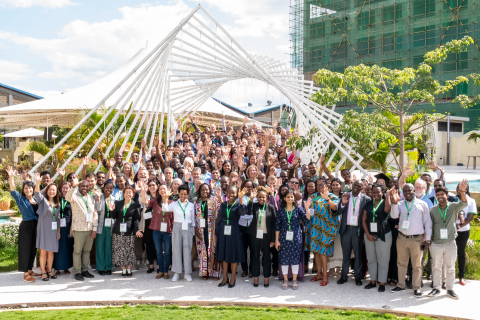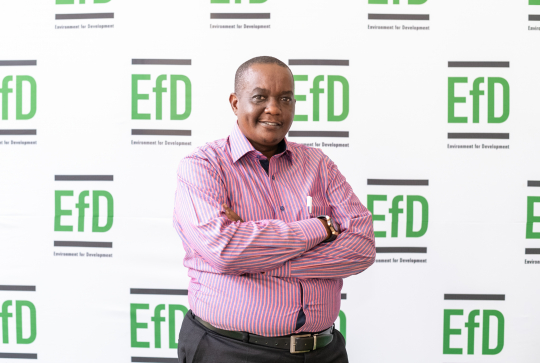
“Hosting the Annual Meeting has led to more collaborations and impact”
The EfD annual meeting is one of the leading conferences in the Global South on environmental and resource economics. This year, about 180 EfD researchers and stakeholders exchanged ideas, initiated collaborations, and showcased research results from EfD projects. Hear some reflections from Professor Richard Mulwa, the Director of EfD Kenya, which hosted the event this year!
What are the benefits for EfD Kenya to host the Annual Meeting?
It has put EfD on the map of environmental research in the country. We have strengthened our collaboration with Nairobi Water. It has opened for discussions with the National Environment Management Authority (NEMA) to support them on ecosystem valuation, the Ministry of Devolution has invited us for talks on collaboration and support, and our interactions with the Swedish Embassy have opened potential collaborations with the private sector and civil society on textile waste management.
It’s also a great advantage for EfD to meet here since Nairobi is a regional hub for many international organizations, such as UNEP, FAO, GIZ, and the UN.
What are Kenya's biggest environmental challenges?
The triple planetary crisis – pollution, climate change, and biodiversity loss – is very challenging for Kenya as well. Our waste system is far from sustainable. Climate change has hit hard on us with astronomical floods. Biodiversity loss is apparent everywhere due to population increase, economic demands, expansion of agriculture, and settlements.
What is the way forward for your country to address those challenges?
We’re looking at all the problems and are taking some steps. For pollution, we have the Sustainable Waste Management Act of 2022, which is meant to revolutionize how we deal with waste and implement a circular economy. The Climate Change Act of 2016 regulates how we should deal with that problem. For biodiversity, our country has committed to the global 30x30 initiative. We have the maps, but it’s a long way to go.
Researchers present studies in all of those areas at the Annual Meeting.
What is EfD Kenya’s role in that development?
Our researchers are touching on each of those areas and interacting with policymakers, civil society, and international organizations. We have, for instance, a collaboration with the Swedish Embassy on textile waste management. We are very active in the field of just transitions: As we transform into a low-carbon economy, we must cushion the effects for those who lose. We have also researched water issues for over a decade and collaborated closely with Nairobi City Water and Sewerage Company.
Will there be some long-term effects from hosting the EfD Annual Meeting?
Yes, over time, I foresee an expansion of our center. As we become more well-known I expect we will attract more collaborations, influence policies, and expand the team we work with.
Facts – EfD’s 18th Annual Meeting
It was held in Nairobi, Kenya, from October 3 to 6, 2024.
Organized by EfD Kenya and the African Association of Environmental and Resources Economists (AfAERE), the meeting comprised plenary sessions, thematic parallel sessions, and workshops.
Keynote speakers:
Francisco Alpizar, Wageningen
Carolyn Fischer, World Bank
Josephine Musango, AfAERE
Jacquie McGlade, Strathmore University
Precious Zikhali, AfAERE
Kevin C. Urama, African Development Bank
Claudine Uwera, Minister, Economic Planning, Rwanda
Pushpam Kumar, UNEP
Jane Turpie, EPRU Research Fellow
Diego Herrera, World Bank
In connection with the Annual Meeting, there was a
Policy Day,
a three-day course for administrative staff,
and a three-day training session in the Inclusive Green Economy Program.




